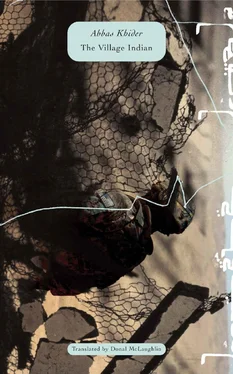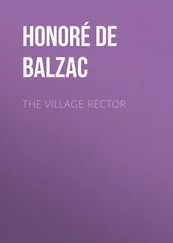Half an hour later, the no-longer-raging policeman returned and pointed his finger at me. ‘Are you from Iraq?’ he asked in English.
‘Yes!’
‘Sorry!’
He closed the door and left. Fifteen minutes later, a different policeman came, gave me an ID, accompanied me to the front door and said, again in English, ‘Go!’
I left Greece and its police and fled to Germany. In Germany, things were the same and yet they were different. The overzealousness of the German police brought my illegal journey to an abrupt end — in the middle of Bavaria. I wanted, actually, to continue to Sweden for I’d heard from lots of other refugees that you got support from the state to learn Swedish and study at university. Nothing like that existed in Germany, apparently. I was on the train from Munich to Hamburg and from there, via Denmark, to Sweden. When it stopped at the station of a small town called Ansbach, two Bavarian policemen came on board. They didn’t ask any of the many blond passengers for their ID but came straight to me. Was it my Indian looks?
‘Passport?’
‘No!’
They arrested me. At the police station, my appearance caused further excitement. The officers simply wouldn’t believe I was Iraqi — they thought I was an Indian or a Pakistani claiming to be Iraqi to get asylum. A fraud, in other words. Given the dictatorship in our country, Iraqis, at the time, were eligible for asylum in Germany, unlike the citizens of many other countries, Indians and Pakistanis, for example. It took a long time for an interpreter and a judge from Nuremberg to arrive in order to test me with a whole set of questions. They wanted to know, for example, how many cinemas there were at the centre of Baghdad. I named some. Child’s play, for me, of course. My Iraqi origins were soon confirmed. I had to give up, however, on the idea of reaching Sweden. The German police had taken my fingerprints and explained that these would now be forwarded to all other countries that offered asylum. I could no longer apply for asylum anywhere else. Only in Germany. Any attempt to leave would be a criminal offence. So I’ve been stuck here since.
If it were only things like this, and that were all, life would be bearable, really. But worse was to follow. Many here were simply afraid of me. Yes, afraid! Even though I haven’t beaten up anyone nor joined al-Qaeda nor even the CIA. It all began on 11 September 2001. From that day, Arabs in Europe lost their smile. The media spoke of nothing but ‘the Evil from Arabia’. At that tense time, I flew from Munich to Berlin for a few days. An old lady next to me, a Bavarian — no prizes for guessing with that accent! — smiled at me.
‘Indian?’
‘No,’ I replied with a smile, ‘Iraqi.’
The smile on her lips froze, turned into a grimace distorted by fear and she quickly averted her eyes. For the rest of the flight, she sat glued — pale and silent — to her seat. You’d have thought she’d seen the Devil! One more word from me and she’d have had a heart attack!
Thinking back to the names I was called, in the East or in the West, I realize that they’ve always had something to do with India. India — where I’ve never been, a country I don’t know at all. The Arabs called me the ‘Iraqi Indian’, the Europeans simply ‘Indian’. I can live, of course, with being a gypsy, an Iraqi, an Indian, an extraterrestrial, even — why not? What I can’t live with is that I don’t know who I really am. I know only that I was ‘burnt and salted by many suns of the earth’, as my Bavarian lover, Sara, always says. And I believe her.
I’ve realized, meanwhile, that there may be a concrete link between me and India, after all — my grandmother. That has a historical background. When the British came to Iraq at the beginning of the twentieth century, they were then also the occupying force in India. Accordingly, they brought a lot of Indian soldiers with them, who set up camp in the south of our country amid the vast palm forests. Who knows, perhaps my grandmother — originally from the south — met an Indian soldier in the forest once. And I am perhaps the product of the union of two British colonies.
There were no writers in my family. You couldn’t find a decent book, even — apart from the Koran and the government’s annual report. Despite which, at some point, I stumbled upon a room full of books — my brother-in-law Sadiq’s library. I was very young when he came to ask for the hand of my sister Karima. He married my sister and I married his books. Sadiq lectured on literature at the University of Baghdad; he was a literary critic and mad about books. The first book I read outside of my texts for school was the one he’d recommended and loaned to me. A translation from Russian— Selected Poems by Rasul Gamzatov. Once I’d read it, the bird immediately got hold of me, the books bird. I read as if possessed. Poetry, mainly. And then, one day, I thought of writing my own poems. I dedicated the first to my neighbour, Fatima. I was mad about her. She had no idea. She was very pretty and could have had any number of men. She paid no attention to me. And so my first poem was called ‘Sighing’. That’s how I began writing. At that time, I was composing poems by the dozen. Later, I began reading and writing stories. Poetry, though, touched me more deeply. Back then, I felt it was the ‘lung of life that allows me to inhale and exhale’.
Since then, I’ve been writing almost daily. I’ve become a writing machine. For a long time, though, I never thought about why I write. Writing was connected to my inner life — it was constantly compelling me to write. Three phases were to emerge, of which I wasn’t at all conscious. To begin with, I simply wrote, thinking that by writing I could capture my feelings in words. Writing was a kind of lightning conductor that would protect me from psychological defeats. If a stroke of fate struck, I wrote and, in doing so, felt such relief you’d have thought the lightning flashing through my soul now streaked across the paper. Then, I thought I could change the world by writing. Just like a revolutionary but with a pencil instead of a weapon. I believed that for a really long time. Finally, I became persuaded that I could even improve myself by writing.
When I write, I see everything as if for the first time, I try to empathize, to understand anew. I am both the student and the teacher. I teach myself and learn from myself. One day I came up with the mad idea of writing my story. I locked myself in my room, blocked out the external world and plunged deep within to bring, each time, another concealed part of myself to the surface. I discovered myself and the world anew and committed this insight to paper. Is what I write real life? I can’t say.
Despite writing like a maniac from such an early age, I didn’t for a long time actually put down that story of mine, with its countless people, towns, wars, uprisings, dead people, women and disasters. It wasn’t because I preferred poetry to prose. No. Prose, too, I write with a passion. The reason was — my terrible memory.
I can quickly forget many things. An ability I consider a blessing. It is thanks to this that I’m still around. I can’t imagine what it would be like if I had total recall. I think I’d have ended my life long ago. Fortunately, then, I have a memory full of holes. The most terrible events fall out of it and never return. I have another ability, another blessing — if something terrible does manage to stick to the edge of my memory, I can embellish it completely and utterly. And, in next to no time, the dirt dissolves and only beautiful — or beautified— images remain.
But the price I pay for this blessing is very high. If I want to write about real events, I have difficulty not only in depicting towns or people’s appearances. My stories also lack what make stories stories — time, place and action. For it’s not just names and people’s appearances I forget. In my memory, different points in time get mixed up until, in the end, I can only roughly guess at which year it was. Unity of action and its chronology cease to exist too. Sometimes only disorderly, vague scraps of narrative are all that remain of true stories.
Читать дальше












